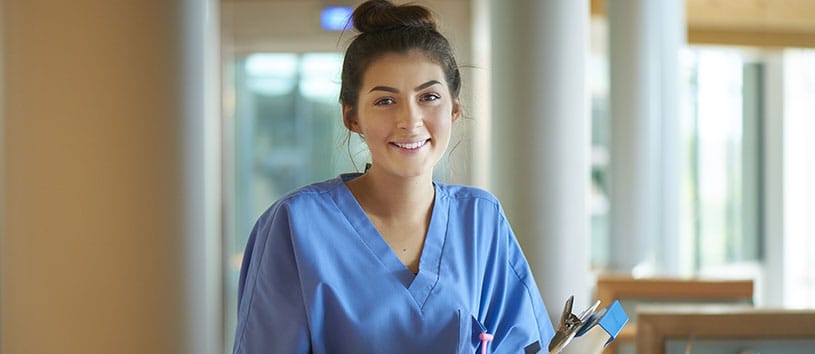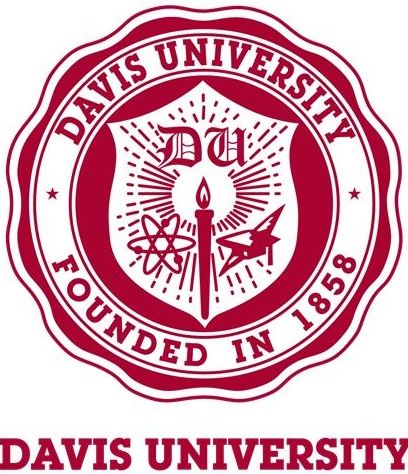Get the Skills to Become a Medical Assistant

1 or 2 Year* Medical Assistant Career Training in Toledo, OH
Do you have an eye for detail, and enjoy working with a team? You can turn your passion for helping others into a rewarding medical career. Davis University’s Medical Assistant programs puts you on-track towards a brighter future in a variety of medical environments.
Become a Medical Assistant Professional
Medical Assistant professionals are highly valued members of many healthcare teams, ensuring important medical procedures are completed to a high standard. They are responsible for a variety of essential duties, including assisting physicians with patient examinations, minor surgeries, and the administration of medications. They also have a strong knowledge of medical terminology and effectively communicate with both patients and colleagues.
Program Lengths
Medical Assisting Diploma – 1 year*
Medical Assisting Associate Degree – 2 years*
Next Start Date: May 13th, 2024 to Jul 19th, 2024Medical Assisting - Summer Quarter : Summer Quarter Davis University - Davis University Four Seagate, Suite 202, 433 N. Summit Street Toledo OH USA 43604 Get the skills and experience to be a qualified healthcare professional. You will learn how to function as a member of a professional team, use the electronic health record, instruct patients, and obtain vital signs and patient history. https://davisuniversity.edu/wp-content/uploads/2020/01/iStock_78029957_mad_hero.jpgDavis University
Program Outline
Medical Assisting Diploma Program
Medical Assisting Associate Degree Program
Exciting Career Opportunities
Once you have completed your training as a Medical Assistant, you will have the skills to pursue a career in a variety of interesting settings, including,
- Physician Practices
- Ambulatory care facilities
- Diagnostic laboratories
- Convenience care clinics
- Hospitals
- Long-term care facilities
- Rehabilitation Centers
- And more!
The best way to see if Davis University is right for you is to come in and tour the school. You can see our facilities and meet with teachers and students. Schedule a Tour Now.
How Davis University Prepares You for Success
The Medical Assistant programs at Davis University are specially tailored to get you into the field with confidence. Career training highlights your commitment and dedication and is a great way to showcase yourself to potential employers who are always looking for trained professionals.
During your Medical Assistant program, you will cover a variety of topics in many interesting and engaging courses, including,
- Medical Terminology
- Basic Billing and Coding
- Electronic Health Records
- Introduction to Clinical Procedures
- First Aid & Emergency Preparedness
- Workplace Safety/CPR
At Davis University, you won’t be alone. Throughout your program, you will be given exceptional support from your instructors who will help you to put your best foot forward into the job market.
Four Day Week
Davis University supports your life schedule, which is why classes only run Monday through Thursday. By having a shorter class week you can balance your schedule more easily, letting you focus on completing your program. You can relax knowing that you have an extra day every week to accommodate whatever obstacles life throws your way.
Externship and Career Services
Near the end of your training at Davis University, you will complete an externship, giving you the workplace confidence you need to pursue your career goals. Your externship will let you apply your new Medical Assistant skills, and help you gain relevant work experience.
Davis University is dedicated to your employment success and provides you with resources to help you achieve a rewarding career, helping you worry less about getting into an exciting new career. The Career Services Office is your link to the Toledo medical community. You will have access to resume writing strategies, portfolio development, job search techniques, and more.
Financial Aid Support
Career training is one of the most valuable investments you can make. Davis University helps by making this process easier. Our Financial Aid advisors will work with you to build a plan of how you can fund your education. They will help you determine your eligibility and provide options for a Federal Pell Grant, student federal aid options, the Davis University plan, and more.
Is a Rewarding Medical Assistant Career Right For You? Get More Info…
If you’re interested in discovering a rewarding medical career and exploring whether Davis University is right for you, fill out the form on this page to receive more information.
For immediate questions, call 419-473-2700.
*Program lengths when completed in normal time.
